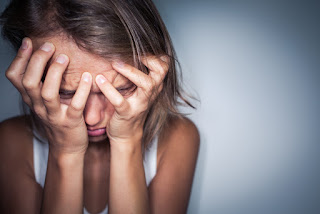Anxiety affects millions of Americans and hundreds of millions of people worldwide. From a clinical standpoint, angst can be the result of a social anxiety disorder, generalized anxiety disorder, panic disorder, agoraphobia, or other forms of phobia. In the field of addiction medicine, anxiety disorders are some of the more common co-occurring mental illnesses affecting people living with alcohol use disorder or substance use disorder.
The term “anxiety” is somewhat nebulous, and it can mean different things to different people. The dictionary defines it as ‘a feeling of worry, nervousness, or unease, typically about an imminent event or something with an uncertain outcome.’ Those who lack safe methods for coping with anxiousness are more likely to turn to mind-altering substances to alleviate their symptoms. Self-medication makes for a clear path to developing both alcohol and substance use disorder.
It is also worth keeping in mind that people who develop problems with substance use are at a heightened risk of experiencing other forms of mental illness. There exist cases where people began struggling with another mental illness following prolonged alcohol or drug use. However, conditions like depression, anxiety, and bipolar disorder often precede drinking or drugging initiation. It is critical that addiction treatment centers address all forms of mental illness that clients present for, simultaneously—regardless of the order in which conditions develop.
Social Anxiety Disorder and Alcohol Use Disorder
Many forms of anxiety exist, but this post will deal with social anxiety disorder, also called “social phobia.” According to the Anxiety and Depression Association of America (ADAA), social anxiety disorder is intense anxiety or fear of being judged, negatively evaluated, or rejected in a social or performance situation. Approximately 15 million American adults meet the criteria for the condition.
Adolescence and young adulthood are difficult and awkward times for countless people. As most people well know, drinking alcohol can make social situations significantly more palatable. Beer, liquor, and wine can lower one’s inhibitions and make him or her more convivial. Those who form associations between drinking and being more socially adept may be placing themselves on a trajectory toward future problems.
A new study dealing with anxiety and alcohol use disorder found some interesting findings. Through interviews with 2,801 adult Norwegian twins, researchers uncovered an association between alcoholism and social anxiety disorder, ScienceDaily reports. Unlike similar conditions, social phobia was linked with a higher risk of alcoholism. The findings indicate that social anxiety prevention, interventions, and treatment could result in also preventing alcohol use disorder.
“Many individuals with social anxiety are not in treatment. This means that we have an underutilized potential, not only for reducing the burden of social anxiety, but also for preventing alcohol problems,” said lead author Dr. Fartein Ask Torvik, of the Norwegian Institute of Public Health. “Cognitive behavioral therapy with controlled exposure to the feared situations has shown good results.”
The findings of the study appear in Depression and Anxiety.
California Alcohol Use Disorder Treatment
At Hope By The Sea, our highly credentialed staff of addiction professionals can equip you with the tools to live permanently without alcohol. Our team understands that more than half of individuals struggling with addiction also meet the criteria for a co-occurring mental illness or dual diagnosis. We will address your alcohol or substance disorder along with any other comorbidities, such as social anxiety disorder.
Please contact us today and take the first steps toward discovering hope again and the miracle of recovery.


